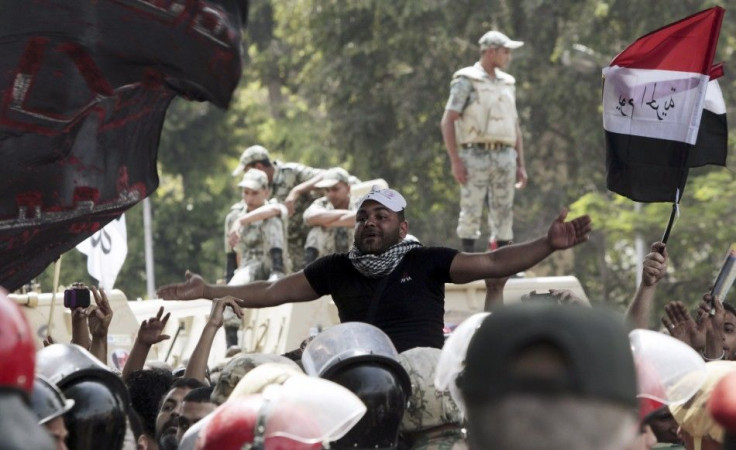Egypt: 11 Protesters Killed In Cairo By Unknown Assailants

A gang of unidentified attackers stormed a sit-in protest early Wednesday morning in front of Egypt's Defense Ministry in Cairo killing an estimated 11 protesters and injuring about 160.
Egyptians gathered outside the ministry in Abbasiya Square for four days now to protest Egypt's military ruling body, the Supreme Council of the Armed Forces (SCAF).
Many are also protesting SCAF's recent disqualification of one of the front-running candidates in the Egyptian presidential race, Islamist Salafi leader Hazem Salah Abu-Ismail. He was shelved as a candidate on grounds that his mother had dual Egyptian-US citizenship -- a violation of eligibility rules set down in the interim constitution following the ousting of former dictator Hosni Mubarak last spring.
The violence was initiated by a group of attackers dressed in street clothes that stormed the square where the protest was gathered, carrying stones, cement-based bombs, firebombs and shotguns.
The identity of the attackers and their affiliation remain unclear.
The army deployed troops to quell the clashes but not until six hours after the violence erupted. The military was also slow to intervene in a similar episode of violence in front of the ministry on Sunday that left one person dead.
This has caused many people to believe that the military was behind the attacks, or at the very least condoned them.
As the BBC reported, the use of plainclothes thugs is a well-worn tactic by the authorities.
However, local military-backed news sources claim instead the attackers were local residents who were fed up with the disruption the sit-in was causing in their neighborhood.
Two of the leading presidential candidates, Abdul Moneim Aboul Fotouh, an independent Islamist, and Mohammed Mursi, head of the Muslim Brotherhood's Freedom and Justice Party (FJP), have temporarily suspended their campaigns in light of the violence and in protest of the authorities' slow response. With the disqualification of Abu Ismail, the presidential contest has shifted focus largely to these two candidates.
Yet, as the first round of the election, set for May 23-24, draws near, tensions are rising. According to the BBC, this recent bout of violence against the protesters will most likely lead to retaliation and continued clashes in the coming days.
© Copyright IBTimes 2025. All rights reserved.





















